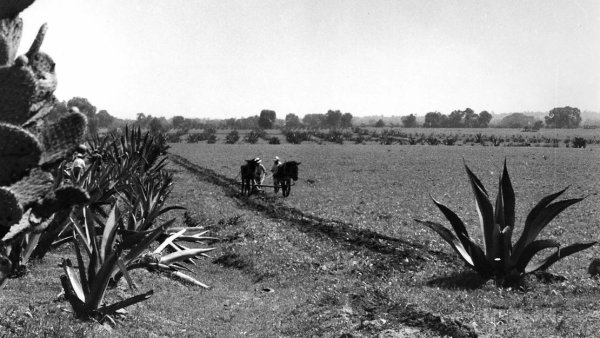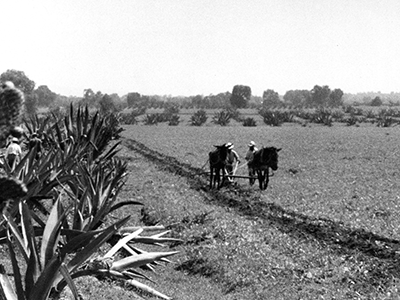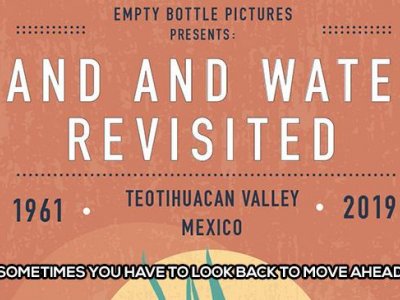
In 1961, Evan Pugh Professor Emeritus of Archaeological Anthropology, William T. Sanders (1926-2008), traveled to the Teotihuacan Valley to film a documentary based on his dissertation research from the mid-1950s. “Land and Water: An Ecological Study of the Teotihuacan Valley of Mexico” provides an invaluable snapshot of agricultural and land-use practices in the Basin just prior to the urban explosion of Mexico City. Sanders documented peasant farmers using masonry dams, canals, and splash irrigation; women and children washing clothes at a nearby spring; and the many uses of the native maguey plant. Attention to such mundane but essential activities is one reason why this 28-minute film has been used as an educational tool for students in the Department of Anthropology at Penn State for almost 50 years.
The Land and Water Revisited Project aims to document the drastic changes that have occurred to the people and the environment of the Teotihuacan Valley in the last 50 years. By comparing footage from the original film, we will produce a new documentary that will provide a tangible example of human impact on the environment. This film project will document these changes through ethnographic interviews and by returning to original shot locations to document visual change. This is also a cultural salvage project because many people involved in the original film are still alive and will be interviewed to capture their reactions to the changes they have experienced. Interviews will also be conducted with Penn State faculty whose research focuses on land use and water availability to show examples of how scholars of today are attempting to find answers to the complex questions surrounding growth and sustainability.
Archaeologists, ethnographers, historians, landscape historians, and environmental engineers will all benefit from a record of the profound transformations of this cradle of urban civilization over the last 50 years. This project will produce an important work that sends a powerful message about the fragility of rural landscapes, cultural heritage, and archaeological remains -- a message that William Sanders forcefully championed throughout his career.







